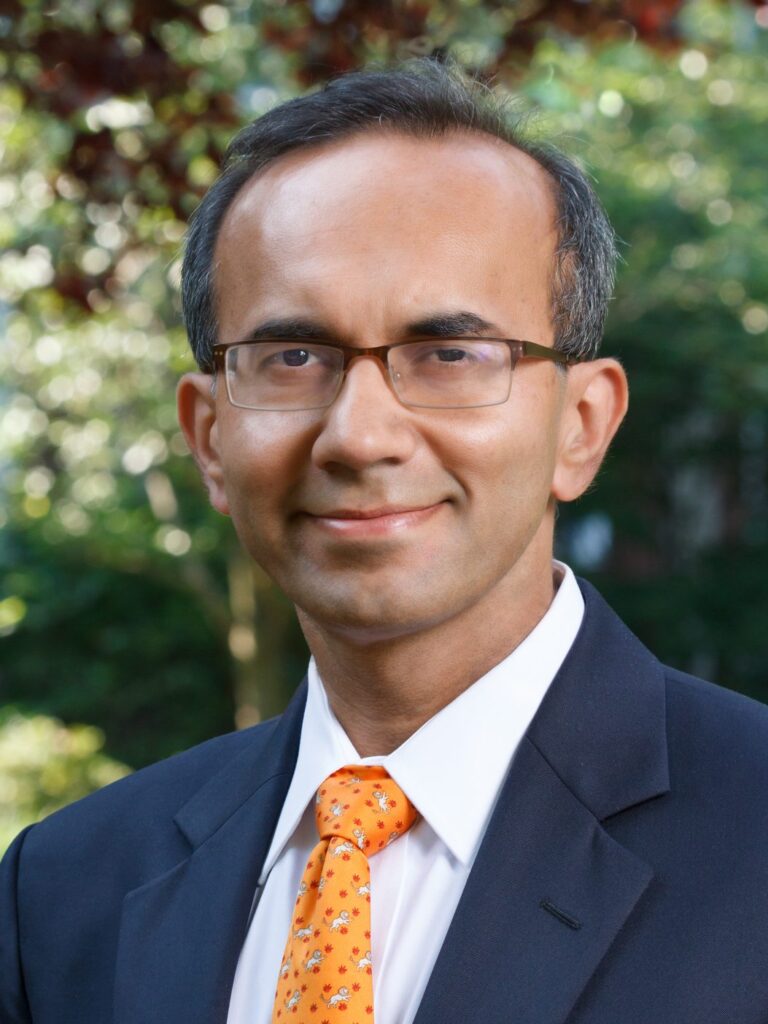In recent years, India’s higher-education landscape has undergone a significant transformation in its private institutions, driven by entrepreneurs and philanthropists. The traditional system, dominated by public institutions, has struggled to meet the growing demand for quality education and keep pace with global standards. This has created opportunities for innovative models to emerge, with the goal of creating centers of excellence that can compete globally while remaining accessible to Indian students. In his recent essay, “One Aspirational Future for India’s Higher-Education Sector,” Tarun Khanna, Harvard Business School professor and principal investigator of D^3’s Tech for All Lab, explores this pivotal change, illustrating how new investments and fresh ideas are reshaping India’s educational framework.
Khanna notes that several key experiments have emerged in this space, each building on lessons from its predecessors. The Indian School of Business (2001) pioneered a model of collective philanthropy, where multiple donors contribute without individual control. Ashoka University (2014) applied this approach to liberal arts education; Plaksha University (2021) aims to reimagine technology education; and Krea University (2019) represents an effort to blend liberal arts with professional studies. These institutions share common elements like global partnerships and innovative curricula, while their research efforts still lag behind global standards.
Key Insight: The Rise of Collective Philanthropy
“Alternative paths have been funded by […] entrepreneurs who have prospered in an emerging and globalizing India, many with exposure to education globally, and typically in acts of collective philanthropy so that no one family controls an institution.” [1]
Collective philanthropy, exemplified by the Indian School of Business (ISB), has emerged as a powerful model for funding and governing new private universities in India. As Khanna describes this approach, multiple donors contribute without individual control, which enables the creation of institutions with greater autonomy and long-term stability. It is particularly effective in contexts where traditional sources of funding for higher education are limited or come with strings attached.
Key Insight: Emphasis on World-Class Faculty and Global Collaborations
“Realizing the challenge of attracting international faculty to an unknown Indian business school, [ISB] pursued academic partnerships with global business schools as a way to facilitate knowledge and faculty exchange.” [2]
Through its academic collaborations, ISB implemented a system where, instead of attempting to hire the majority of its faculty for permanent positions, visiting faculty would teach one or two courses during a five-to-six-week period annually. This arrangement enabled ISB to attract distinguished faculty from top global business schools. By the time ISB commenced operations, it had onboarded four permanent and twenty-three visiting faculty members. The other collective-philanthropy schools in the study continue to exemplify this global-collaboration strategy.
Key Insight: Innovation in Curriculum and Pedagogy
“Krea [University] aims to develop agile, ethical, and purposeful leaders prepared to navigate human-human, human-machine, and human-environment relationships.” [3]
Khanna highlights the significant pedagogical and curricular innovations at these universities compared to the traditional Indian approach to education, which typically emphasized rote learning and specialized, discipline-based education with a heavy focus on theoretical knowledge over practical application. In contrast, new institutions have adopted a more holistic and interdisciplinary style. This approach fosters an education system that prepares students to be adaptable, thoughtful leaders capable of handling complex global challenges. However, its long-term impact on employability and career outcomes is still to be fully evaluated.
Key Insight: Challenges in Advancing Formal Research
“For all the excellence in teaching that prioritizes more than a purely technical education, research has received relatively scant attention.” [4]
While these new institutions have made significant progress in improving teaching quality and student experiences, they still lag behind in research output compared to global standards. Substantial public funding supports major global academic institutions, whereas new Indian universities rely on private funding, which may not sustain long-term intensive research activities. This research gap will need to be addressed for these universities to truly compete on the world stage.
Why This Matters
For business professionals and C-suite executives, the transformation in India’s higher education sector signifies a promising area for investment and strategic collaboration. The rise of privately funded, innovative educational institutions indicates a robust market for new ventures, particularly in the realms of technology and education. Additionally, these institutions’ commitment to producing globally competent, socially conscious graduates can provide businesses with a diverse and skilled workforce ready to address contemporary challenges. This evolution in higher education not only boosts India’s educational standards but also contributes significantly to national socio-economic development, offering a compelling narrative for any business leader looking to invest in the future.
References
[1] Tarun Khanna, “One Aspirational Future for India’s Higher-Education Sector”, Dædalus (Spring 2024): 149-166, 152.
[2] Khanna, “One Aspirational Future for India’s Higher-Education Sector”, 155.
[3] Khanna, “One Aspirational Future for India’s Higher-Education Sector”, 159.
[4] Khanna, “One Aspirational Future for India’s Higher-Education Sector”, 162.
Meet the Author

Tarun Khanna is the Jorge Paulo Lemann Professor at the Harvard Business School and a principal investigator of D^3’s Tech for All Lab
 Xiaowei Guo
team; he studies entrepreneurship as a means to social and economic development in emerging markets.
Xiaowei Guo
team; he studies entrepreneurship as a means to social and economic development in emerging markets.
